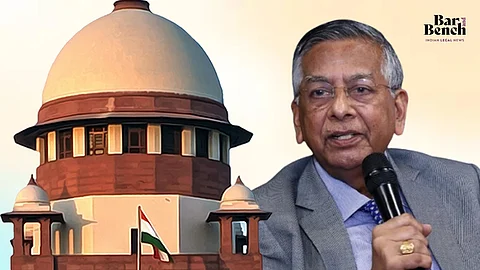Attorney General for India (AG) R Venkataramani on Tuesday questioned the Supreme Court's April ruling that set timelines for Governors and the President to grant assent to bills passed by legislatures, asking whether the Court can re-write the Constitution.

